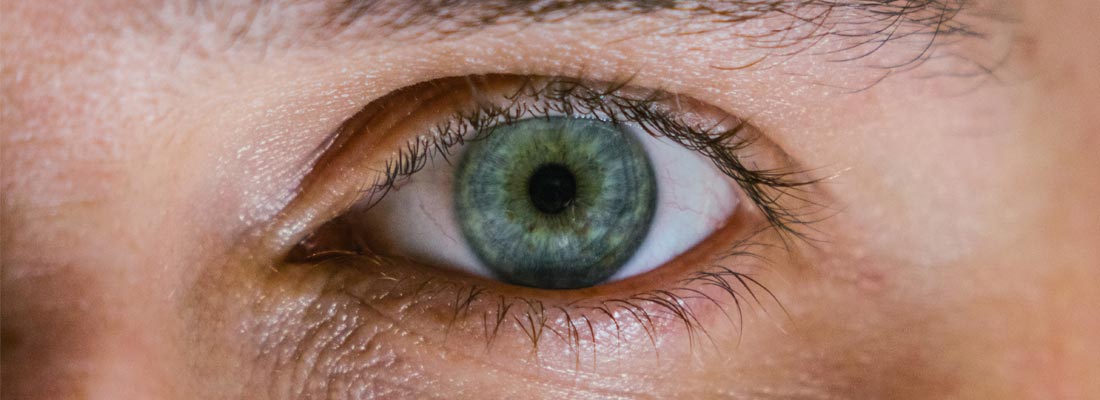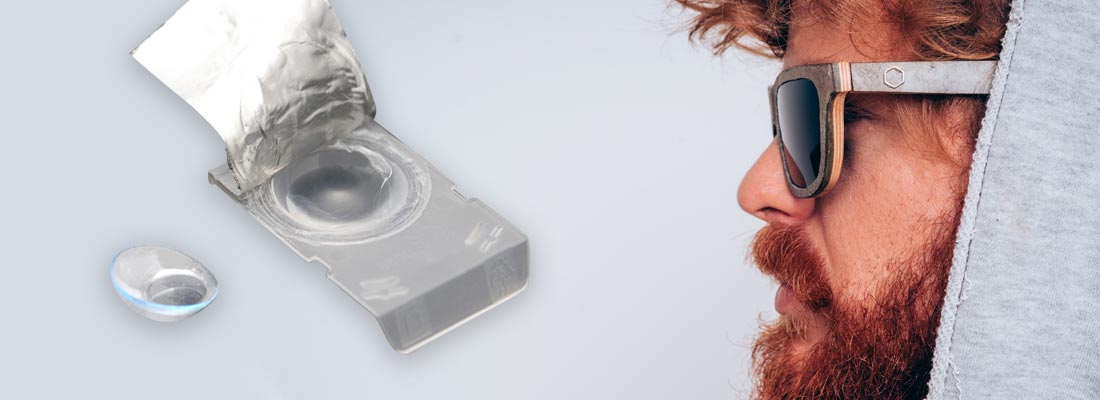
02:57 -
© Ali Pazani, Unsplash
For some people, glasses aren’t their first choice, preferring contact lenses that no one would ever know were there, especially if they worry that thick corrective lenses could make their eyes look smaller.
Decided to take the plunge and ask your optometrist for a prescription for glasses and contact lenses last time you saw them? Before considering the contacts option, your optometrist would first have examined your eyes and made sure that you can wear contact lenses, before deciding what type of lenses would be best for you.

© Adobe Stock
There is no rule that says you have to choose between contacts and glasses, or even alternate between the two. It all depends on your specific needs. The key to wearing both is to let your eyes breathe by trying not to wear your contacts for more than 12 hours a day (unless designed for continuous wear and on special prescription from your optometrist). This is where glasses come in. There was a time when wearing glasses felt onerous. Now though, glasses are seen more as fashion accessories for reflecting your personality, while also correcting your eyesight. Whereas once people wanted to hide them, now they want them to be seen. Just not necessarily all of the time, especially if thick corrective lenses can make the eyes appear smaller, for example. In that case, wearing contacts becomes an aesthetic choice and glasses are used more for comfort after work.

© Jordan Whitfield, Unsplash
Speaking of comfort, don’t forget that contacts and sunglasses work well together summer and winter, coping even with the sun reflecting off water or snow. In fact, sunglasses are complementary to contacts, especially during prolonged exposure to the sun and UVs. Remember, there are also photochromic contacts that darken in bright light.
If you like to change your glasses, depending on what you’re wearing, for example, then you can keep your contacts in and wear sunglasses with non-corrective category 3 (or 4 at high altitude) lenses over the top. If, however, you would rather avoid contacts, in summer for example, because of sand and swimming, you can always opt for prescription sunglasses instead. But, if you opt for contacts, be very careful if you go swimming while wearing them. This should really be avoided, due to the risk of infection. Microbes (amoebas) in the water are incredibly dangerous for the eyes. These amoebas are found in rivers and lakes, not to mention the water in your bathroom! Opting for prescription swimming goggles though, will allow you to swim while seeing clearly. If you do go swimming with your contacts in, opt for daily disposables and change them as soon as you get out of the water to reduce the risks.

© Vinicius Amano, Unsplash
Contacts and glasses both have their advantages and disadvantages, why is why embracing the two can be worthwhile. The main advantage of contacts is that they are adapted to the shape of the eye and can follow all its movements. In the absence of frames, your field of vision is significantly wider as well. Contact lenses are also ideal if you’re into sport, because you won’t risk knocking them off and breaking them. That said, contacts are best avoided for water sports!
Going back to mixing glasses and contacts, it all depends on what your needs, as you can choose to wear your contacts during the week, at the office, and have the weekend off by wearing your glasses. Otherwise, you can keep your contacts for going out and your glasses for work.
Before wrapping up, bear in mind that glasses also have many practicalities, like the fact that they can be worn even when your eyes get irritated, as well as at high altitude, without risking damage to your eyes from UVs (provided they are category 3 or 4). Finally, drivers should be aware that in some countries, the Highway Code requires contact lens wearers to keep a pair of glasses in their glove box, just in case. Having glasses and contacts is ideal for dealing with any eventuality. Find the right balance for you!